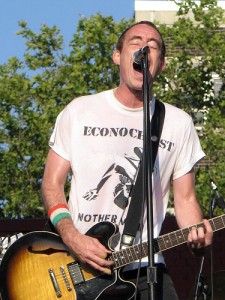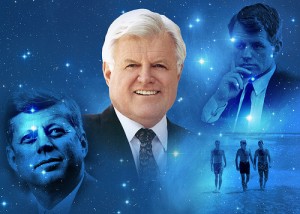TEDxNYED was an interesting event in a couple of ways. A few blog posts have hit my reader already from people I respect (eg Will Richardson, who was in attendance, and Jim Groom, who was not there but posted on a topic directly related to the TED and TEDxNYED phenomena). I enjoyed many of the talks but walked away feeling more defeated than energized.
I’ve always had extremely mixed feelings about TED talks. I’ve watched a few dozen of the freely available videos over the years, and most seem, in my unstudied view, to be little more than glorified project pimps or book promos. I’m sure that the folks who organize TED try hard to keep explicit self-promotion off of the stage, but in the end it’s a symptom of the format: if you invite someone to give a very brief, non-specialist-level teaser on some piece of great work they’ve done, what can it really be except for a bragfest?
Sitting through TEDxNYED, I was in a sense relieved that all of the talks were limited to 18 minutes (a cornerstone of the TED philosophy) – the energy level in the room stayed pretty consistently high, which can largely be attributed to the brevity of the talks. But I also found myself frustrated, in much the same way that I do with TED talks in general, with the lack of focus on just what the 18-minute talk is supposed to do. Few of the talks present anything resembling a thesis; in eightteen minutes, just what kind of thesis worth defending could be laid out, considered, justified? It’s not as if argumentative presentations are the only ones worth giving – far from it – but in the absence of an argument to give structure to the talk, there has to be some other purpose. Some of the talks fall into the “rallying cry” category, which is to say that they present an issue in a way to get people emotionally involved enough to want to get out there and participate. This is a more realistic goal for 18 minutes, but few speakers have the humility, grace, eloquence, and project to pull it off. TED states its mission as “spreading ideas”, which in its vagueness is an indicator of how the individual talks themselves can vary so much in their focus, or lack focus altogether.
Then there is what D’Arcy Norman has called the “elitism” of TED. I will say happily that the TEDxNYED application did not ask for lifetime achievements, but only for a few sentences explaining why I wanted to attend the event. I don’t know how many people were turned away from the event, and what role these few sentences played in choosing who got in and who didn’t, so I’m afraid I can’t corroborate whether this was an awesomeness-filter. Related to D’Arcy’s concern, though, is the more worrisome hero worship that Jim gestures toward in his post. You invite a bunch of famous-on-the-edtech-internet folks to speak, fill the room with education dorks (which I mean in the sweetest way possible, including myself in the ‘dork’ camp), and then watch the echo chamber effect get out of control. As I heard a few people lament throughout the day, the people who really should be hearing some of the talks – and in particular the “rallying cry” kind of talk – were not the kinds of people who come to an event like this. Will’s post points out nicely the tendency to feel giddy after a day of chumming with like-minded folks, and the difficulty of connecting back with the work you do in your everyday life.
I saw a tweet in the middle of the day – wish I could find it now – that remarked on the irony of a day full of lectures delivered to a roomful of people who love to decry the utility of lectures as a learning tool. Another part of the TED philosophy is that “all of knowledge is connected” (which, understood in the right way, can be an interesting hypothesis) but I walk away from the day feeling that connections between the presentations are still largely hidden or at least implicit. This disjointedness is in part a product of the unidirectional nature of the TED format: the speakers have a chance to connect by making references to earlier events in the day, but there’s no organized way for the audience to do the kind of hands-on synthesis that would ground the connections in their own experiences and goals. Some of these connections are made informally over lunch and at the after-party, but at those events I found myself talking to people I already knew about things we already agreed upon. Largely my own fault, I suppose, but it’s also a function of the way that the TED conference is not set up to encourage cross-pollenization of ideas between .
The above sounds like a lot of complaining. It’s not meant to be. I’m very glad I had the chance to hear several of the speakers through the day, and I made some nice personal contacts with people I had only heard of or only knew on the internet. The day was a net positive for me. But I can’t help but think that the TED format, while perhaps being well-suited to some purposes (explaining why neuroscience is important for non-neuroscientists, maybe), it’s more difficult to reconcile it with the needs of a community, like the NY educational community, that already shares certain practices and beliefs.



